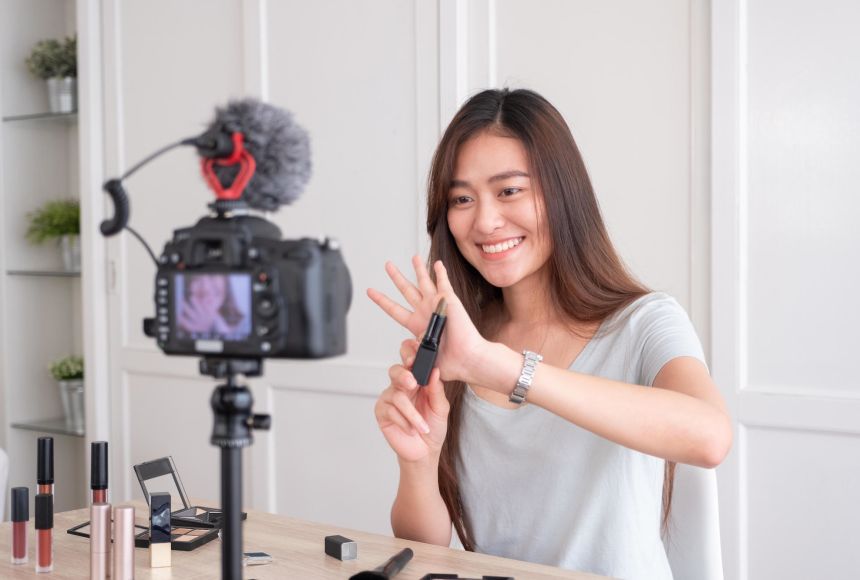Social media influencers use social media to build their own personal brand or influence their followers to act. They may tell their followers to buy products, support a brand, or visit a certain place. They can share about anything from clothes and beauty products to make-at-home slime with their followers. While it might seem like it's just for fun, some influencers are making significant amounts of money from their connection to their fans. Not every social media influencer is an entrepreneur. However, the ones who have started their own businesses have much in common with traditional entrepreneurs.
Are Influencers Entrepreneurs?
Entrepreneurs are people who organize, manage, and take on the risks of a business. They often start a new business in response to a need for a product or service. An influencer, on the other hand, is someone who has the power to affect or change people and their behavior through social media. Influencers who start their own business are definitely entrepreneurs, since they manage their business, but are they fulfilling a need? Many say yes. Companies can target specific groups of people through employing an influencer. These groups might be missed by traditional advertising. And because influencers form a more personal relationship with their followers, the followers seem more likely to buy what the influencer suggests.
Getting Started
Starting a business is one area where entrepreneurs and influencers differ the most. Nearly all traditional businesses have startup costs for buying materials for material or equipment to manufacture items or provide a service. But entrepreneurs do not always have to put their own savings into a business. They can raise venture capital, which is money to start or grow a business, from outside investors. Often the funders get part of the business in exchange. Influencers, on the other hand, have much lower startup costs, though it can vary. Beauty and fashion influencers may have to get new clothes, for instance, buy the latest makeup, or hire a professional photographer. Other influencers, on the other hand, only need their social media accounts and a smartphone. Additionally, influencers usually don't have to spend money on renting office space, since many of them work from home.
Building a Brand
Building a brand is critical for both influencers and entrepreneurs, but they do it in different ways. Entrepreneurs build their brands slowly over time as they create their business. First, they determine what sets their brand apart from others. Then they need to figure out how to communicate that to consumers. A lot of brand-building happens when the business is in its startup phase. Some of it happens when the product or service hits the marketplace and gets feedback from the consumers. For entrepreneurs, the product or service usually comes first, and the brand comes second. Influencers also develop their brand over time. But because their brand is their personality, it has to be perfected and be appealing to followers before the influencer is able to make money. Influencers know how their personalities are different from other influencers. They develop a message to reach and gain followers, then monetize it through partnering with brands. For them, their personal brand comes first, and the service of reaching followers comes second.
Making Money
Most entrepreneurs make money from their businesses in a straightforward way. Most businesses sell a product or service for more than it costs to make them, which is their profit. Influencers have a less clear path. After building up an audience of followers, influencers may enter partnerships with companies or advertisers. The companies pay them to post about a product or service. With social media channels, like YouTube or Instagram, influencers can add advertisements to their page, creating another way of making money. Most influencers earn money through a combination of advertisements, company-sponsored posts, and sometimes creating their own brand of products. And of course, they advertise these products on their social media channels.
Driving the Economy
Entrepreneurship is a major driver of economic growth. As influencers have grown in number and become more and more popular, it has become clear that they are helping to boost the economy as well. Entrepreneurs drive economic growth in many ways. By fulfilling a need for a good or service, entrepreneurs create new markets and also create competition. For example, Uber was created to fulfill the need for more taxis.
Soon, a number of ride-sharing companies sprang up in this new category. As new companies grow, they can create employment opportunities by hiring more people. Entrepreneurs also encourage innovation, which is clear from the vast number of startups that introduce new technology to the world.
Influencers can drive the economy in similar ways. They have created a new market on social media. Their need for professional help in creating content can create employment opportunities, and competition becomes stronger as more people become influencers. Influencers also get followers to join new social media platforms to get access to their content and provide marketing opportunities for companies. As entrepreneurs themselves, influencers create businesses and add a few unique features that continue to boost the economy in a socially connected world.

